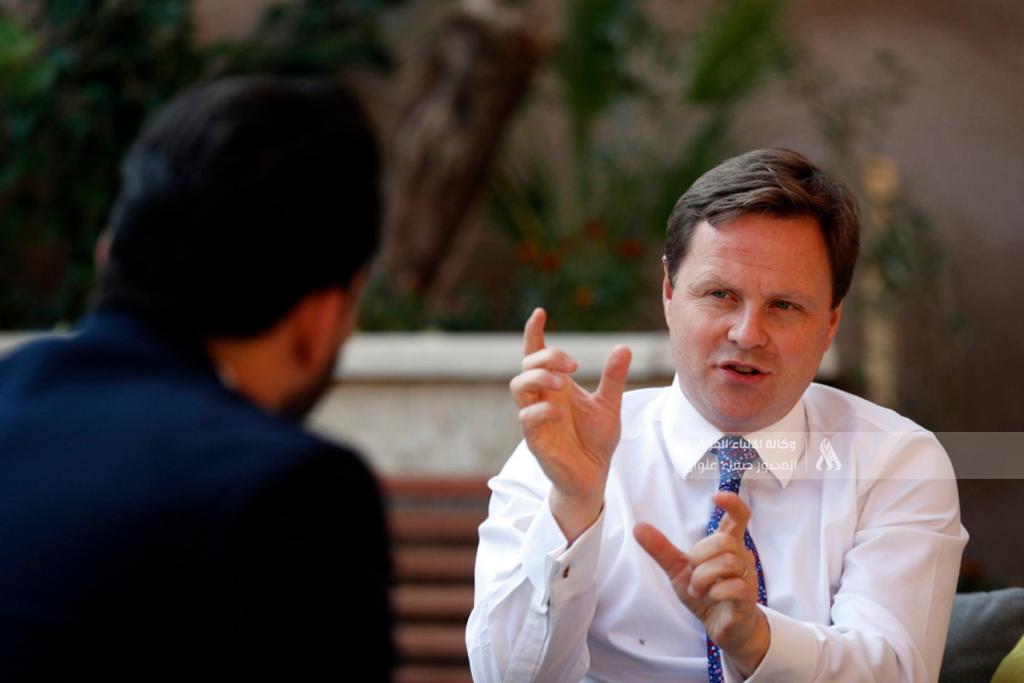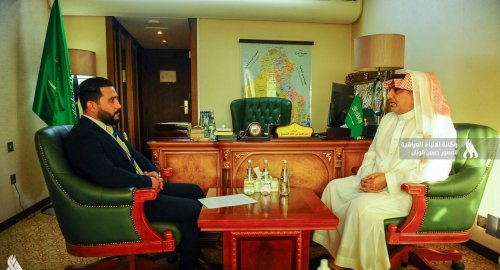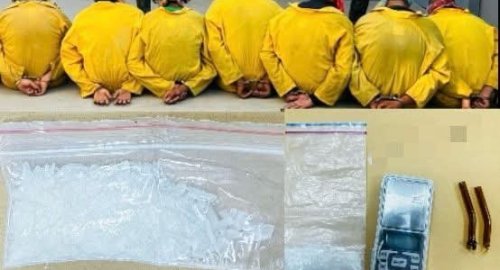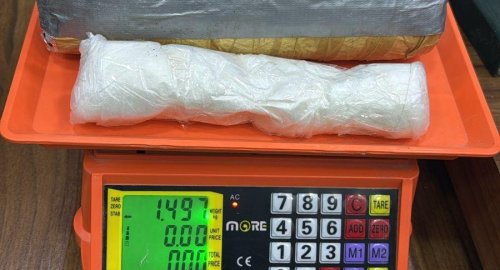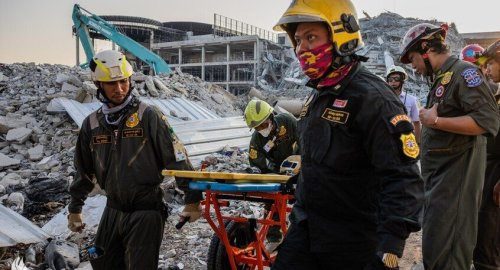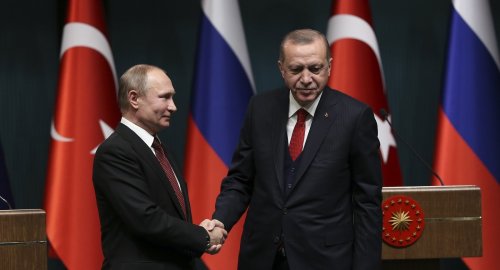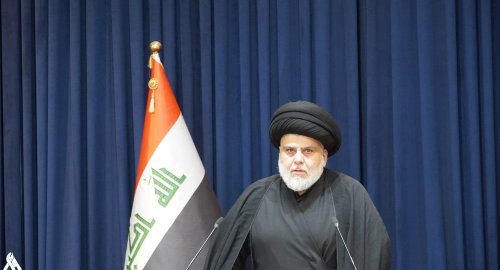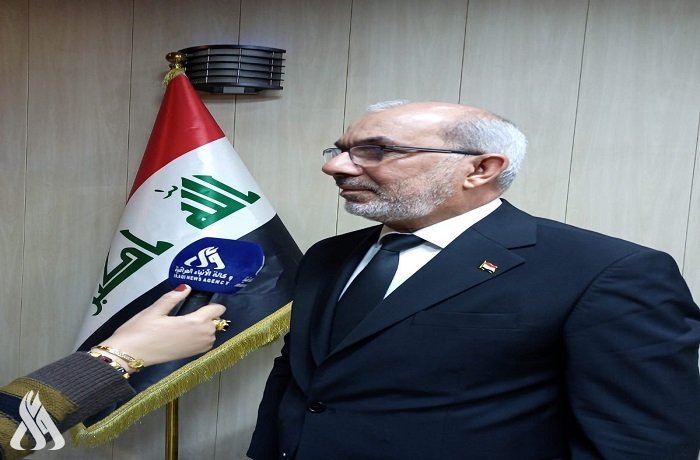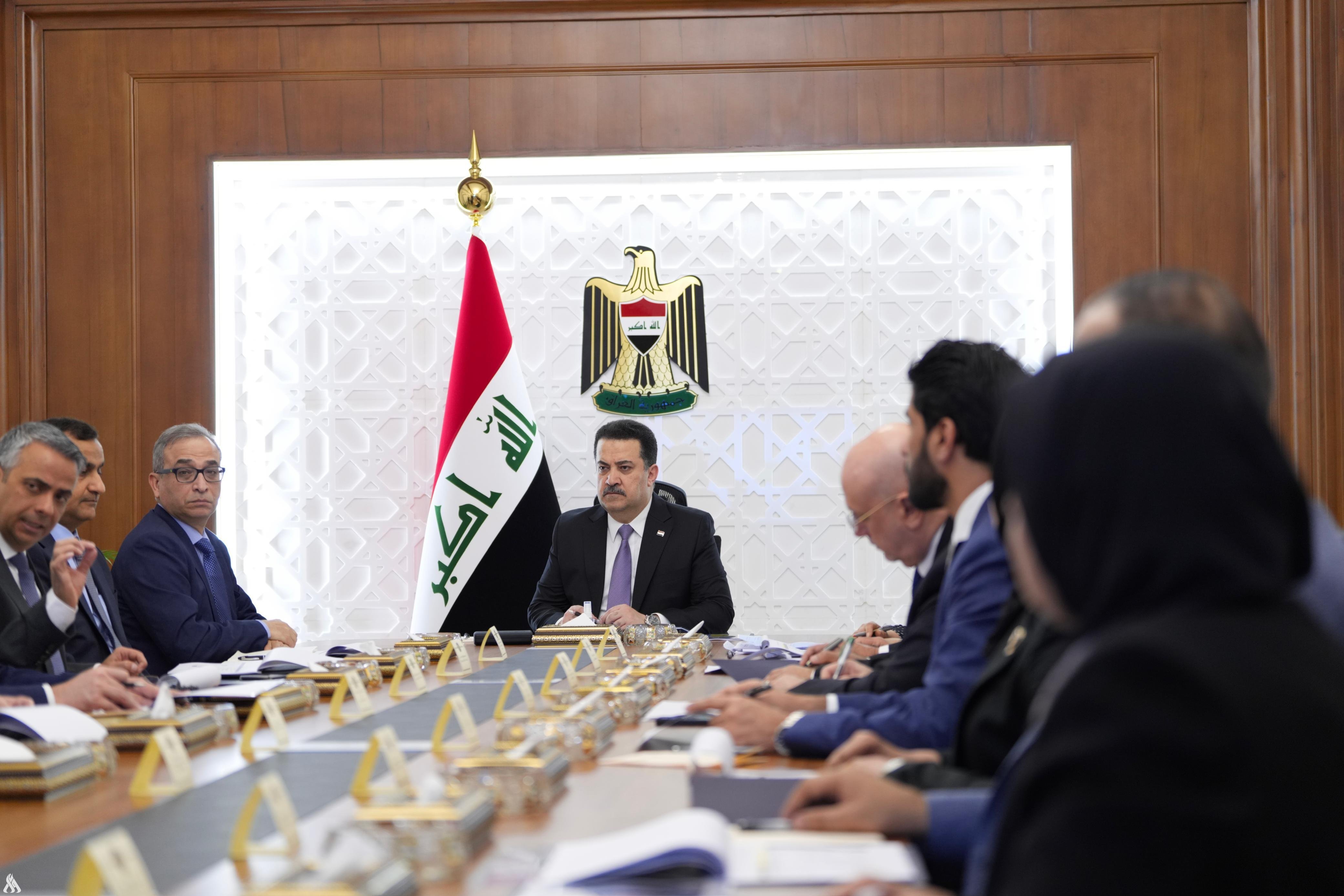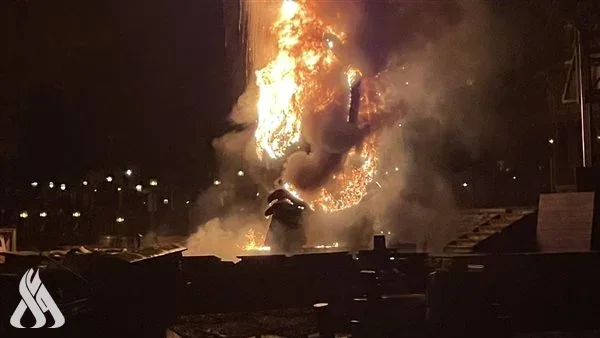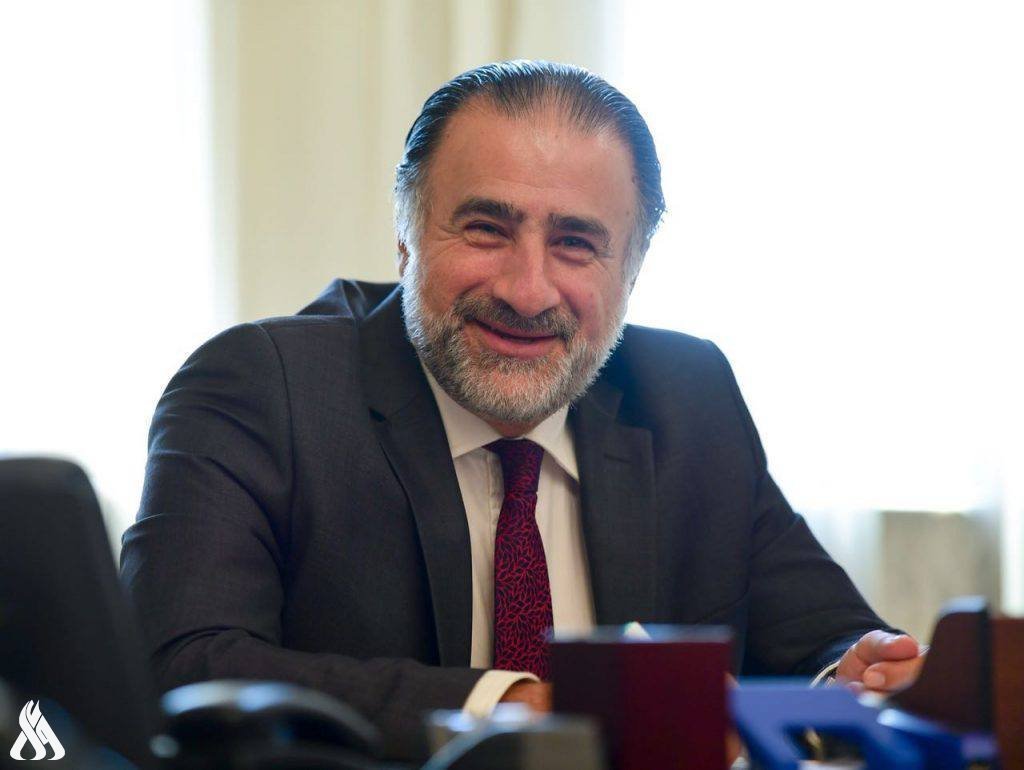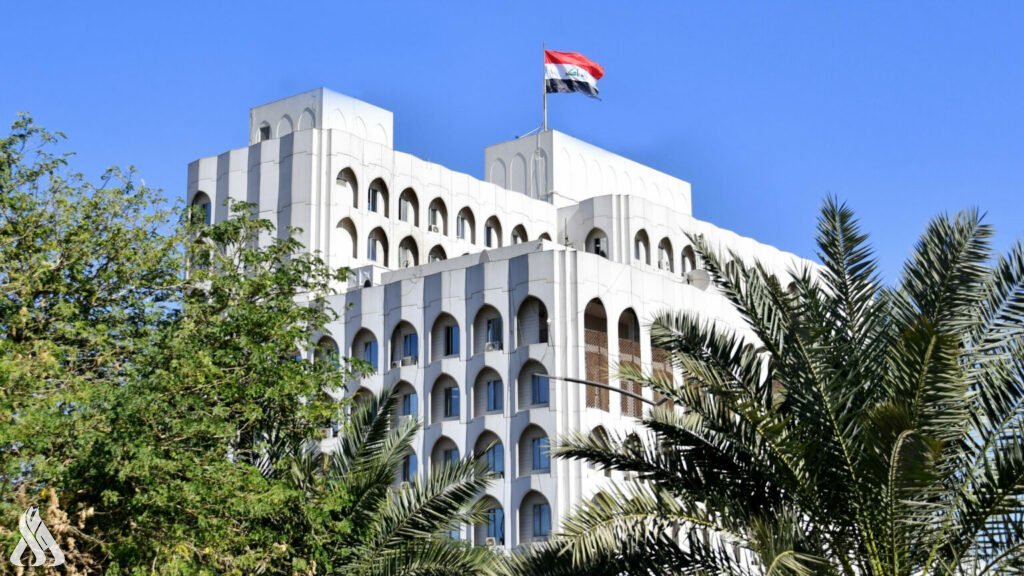
INA opens 17 files with UNDP most notably anti-corruption and al-Hol camp

- 27-01-2022, 16:00
Harith Al-Abadi
Baghdad-INA
The United Nations Development Program in Iraq elaborates the details of two projects, one of which includes employment, and the other concerns journalists, while setting the date for the end of the stabilization program for IDPs, it also indicated its support for the return of families from Al-Hol camp.
"Based on The Country programme document for Iraq (2020-2024), The UNDP supports five interrelated, holistic, and comprehensive development tracks, supported by a resilience-based strategy that meets the needs of the most vulnerable communities," noting that "these tracks included (economic diversification, democratic governance, Energy, environment and climate change, societal cohesion, and restoring stability), Zena Ali Ahmad The Resident Representative, UNDP Iraq told the Iraqi News Agency (INA).
She also affirmed that the programme has one pf the biggest allocations in the UNDP in the whole world, as the budget specified for the programme in 2021 amounted to more than 425.87 million dollar from 50 funding sources-donors for more than 30 projects.
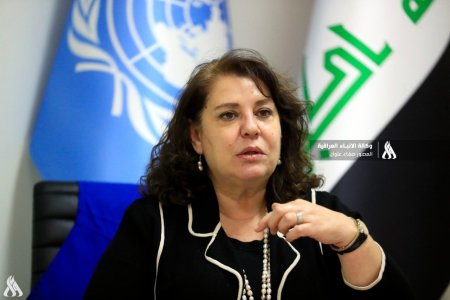
Focus on women
"UNDP believes and works with great seriousness according to professional standards responding to the Iraqi reality in order to integrate the issues and needs of women and men in all our projects, and this principle cannot be deviated from. In addition, we are aware of the gender gap between women and men in various fields, starting from the high rate of school dropout among females, high poverty rates and the limited participation of women in decision-making positions, which necessitates a strategic focus on empowering Iraqi women and girls of all segments, taking into account the conditions of displaced women, returnees and females family heads”, the programme Director also emphasized.
She stressed, "The programme will focus in 2022, on promoting sustainable livelihoods and job opportunities in particular, with the return of families suffering from deep debts and the absence of their savings, as we will search for ways to create sustainable livelihood opportunities to rebuild and avoid re-displacement, to create more of these opportunities".
She continued "empowering and enabling women is essential due to their critical role in advancing the economic development, as we work with women across the five liberated governorates to give them the appropriate resources in the form of guidance and grants to build on their business ideas," explaining that "the programme has so far granted more than 5,000 women-owned businesses through asset recovery and small business grants".
Youth support
Ahmed indicated, "The United Nations Development Program in Iraq always seeks to provide support to Iraqi youth in the field of innovation and entrepreneurship, and to work with the Iraqi government to reduce the unemployment rate and implement projects that have a significant impact on increasing job opportunities, developing skills and building capacities," explaining that "our program contributed by encouraging young people to adopt the concept of entrepreneurship and rely on self-employment, in 2019, the Development Accelerator Labs initiative was launched in 90 countries around the world and Iraq.
She added, "These laboratories mainly focus on providing technical, logistical and material support to young people in order to develop their innovative local projects and solutions, in addition to their emerging projects in order to expand the scope of their work, as well as working on experimenting with innovative tools and methodologies that accelerate growth, developing these solutions and linking them to government institutions." She explained, "Within the development accelerator laboratories, more than 150 local youth solutions were identified, nearly 20 solutions were tested, and more than 10 local solutions were adopted by our partners in government and community institutions. These initiatives are aimed at encouraging youth to innovate and a message from our program is for them to trust us with their local solutions and how their participation, even if it is simple, can affect our role in finding local solutions to the development problems facing the country.”
Dr. Zena stressed, "We view the youth as the future of Iraq, and ensuring the education and empowerment of youth is vital to securing a peaceful and prosperous Iraq for future generations," noting that "the United Nations Development Program supports 10 groups of youth and women for peace in Anbar, Diyala, Kirkuk, Nineveh and Salah." The religion, which has 200 members (20 in each group)".
She pointed out that "the implementing partner Kurdistan Human Rights Organization supported in 2021 all members of the group by building capacity in designing peace initiatives and will work on planning and implementing 50 community initiatives in 2022, in all target sites in the five governorates."
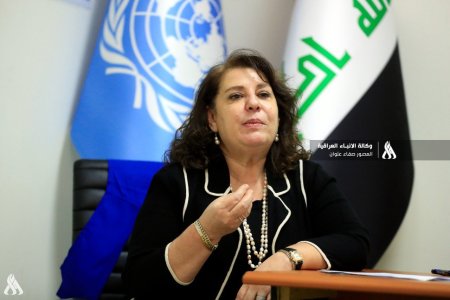
Journalists project
Dr. Zena indicated, "There is a wide project for young journalists, as our citizen journalism project was launched in 2020 for 80 students from media colleges and 40 bloggers (a total of 120) who are active in advocating for peace building and strengthening social cohesion from the governorates of Baghdad, Nineveh, Diyala, Salah al-Din, Najaf, Karbala and Anbar, Basra and the governorates of the Kurdistan Region,” noting that “the second phase of the citizen journalism project is underway and includes building additional capacities for the selected group, in addition to training 80 new members, and a competition for short films.”
The second phase of the project will focus on combating hate speech, preventing violent extremism on social media, and using citizen journalism tools to enhance societal cohesion, including the creation and promotion of 500 new media products by trained journalists.
Sustainable development
"Sustainable development and its seventeen goals are an international action plan 2030 that has been matured in coordination and cooperation between countries in order for national governments to be inspired by their national vision for sustainable development," noting that "the essence of the sustainable development plan is based on the integration of its objectives in order to achieve all dimensions of development: Political, social, economic, and environmental, and any attempt to achieve a goal or address a problem needs to work closely through these dimensions combined, and by adopting the principle of “no one being excluded” as its basic core, as it calls first and foremost to pay attention to all segments of society, and go further pay special attention to efforts to support vulnerable groups, she added.
Ahmed also stated that "Iraq, with the concerted efforts of all local and international partners led by the Government of Iraq, has made great and distinguished efforts in the long-term reforms necessary to achieve the vision (2030), which is based on expressive national priorities for promoting a culture of tolerance, dialogue and community peace, as well as encouraging all groups to achieve integration Active in society, especially the youth, whose readiness for the future must be ensured.
Civil society organizations
Ahmed indicated that "the United Nations Development Program works with many local Iraqi organizations to implement projects on the ground, and also supports community organizations through various trainings and small grants, and with NGOs to develop capacity-building on preventing violent extremism," explaining that "the United Nations Program Development respects the religious values and beliefs of any society and will never change the values of society. We focus on encouraging and supporting building peace and social cohesion within Iraqi societies, which are valuable to all societies and religions.
She stressed that "the United Nations Development Program partners with Iraqi organizations at all levels, as some organizations implement our projects and activities through the process of competitive differentiation and others through agreements depending on the delegation and capacity of the organization and the type of project, and we also involve Iraqi organizations within our networks."
She explained that "the United Nations Development Program is also working to build the capacity of civil society organizations in many areas, such as community cohesion, mediation, preventing violent extremism, and others. For example, we are currently working to support 300 community organizations in five Iraqi governorates through training in community communication skills and writing." Proposals and design of local peace initiatives, 50 community organizations, equally distributed among governorates, will be supported with grants to implement community initiatives that contribute to community peace and improve community cohesion in their areas.
Efforts to stabilize liberated cities
Dr. Zena continued, "The United Nations Development Program supports the Government of Iraq to facilitate the return and reintegration of Iraqis displaced from the war against ISIS, and to return to their communities," explaining that "through the Stabilization Funding Project launched in 2015, we rehabilitated vital infrastructure and supported Restore basic services damaged by the war against ISIS, and our comprehensive approach creates livelihoods, develops the capacity of local authorities and enhances community cohesion.”
She indicated that "the United Nations Development Program focuses on providing conditions for the safe, dignified and voluntary return of the internally displaced to their homes."
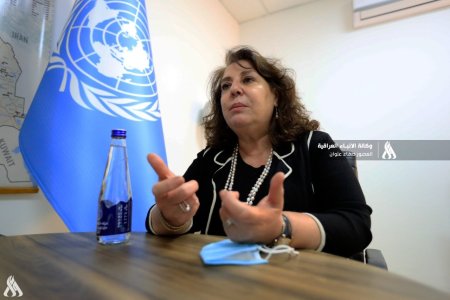
Liberated governorates projects
She stated that "the program works in 31 locations across the five liberated governorates - Anbar, Diyala, Kirkuk, Nineveh and Salah al-Din, and in nine main sectors - electricity, health, water, education, sanitation, livelihoods, municipalities, roads and bridges, and community cohesion.
Rehabilitation of public infrastructure and the provision of basic services to communities living in conflict-affected areas,” explaining that “since the launch of the project, we have mobilized about $1.4 billion from 30 donors, including the Government of Iraq.”
And she noted that "since 2015, the program has supported the return of 4.93 million Iraqis who were displaced due to the war against ISIS, and so far more than 2,960 projects have been completed in the five governorates liberated from ISIS, which has improved the lives of more than 6 million Iraqis."
"UNDP follows a zero-tolerance approach to corruption, where our stringent procurement standards mean that we operate with the highest levels of accountability and transparency," she said.
Social Development Contribution Efforts
Ahmed stated that "it is important to point out and praise the efforts of civil society institutions, especially the women and youth groups that struggle on a daily basis and in various fields. From our side, we cannot neglect the interest in empowering women, building the sober family and childhood, and enhancing the values of citizenship through our support for civil society institutions and through work." Directly with local national institutions in the field of social development, and perhaps it is useful to refer to our direct support for women workers in the field of social research as specialists through whom women are supported, as well as support for women and girls, and even families in areas liberated from terrorist groups.
Community Reconciliation Project
Ahmed pointed out that "the United Nations Development Program has so far helped 3,451 families return to their areas of origin in Anbar, Salah al-Din and Nineveh by working with local peace mechanisms and facilitating individual requests," explaining, "The families who were stigmatized because of one of their members' affiliation with ISIS, have They face additional challenges as they return and help prepare society for reintegration."
She emphasized "the program's support for 28 local peace mechanisms in Anbar, Nineveh, Salah al-Din, Diyala and Kirkuk, which maintain contact with local communities and their needs," noting that "the reconciliation and community reintegration project was launched in 2021, through which the United Nations Development Program will facilitate the return of 9000 families to four regions in Iraq, in addition to a full reintegration package that includes livelihoods and psychosocial support, in addition to the rehabilitation of their damaged homes.
Al-Hol camp
"the United Nations is working with the Government of Iraq to support the return and reintegration of displaced Iraqi families whose members are believed to be affiliated with ISIS, including those returning from Syria, in line with the government's efforts to end the protracted displacement through proactive measures to facilitate access to durable solutions." Pointing out that "the United Nations Development Program focuses on the part of reintegration and acceptance of society." She stated.
Reconstruction of the liberated areas
"The stabilization program to support the return of displaced Iraqis to their areas in the liberated governorates is through 4 windows, which are infrastructure, housing, livelihood support for municipal capacities and community cohesion, achieving the return of more than 5 million displaced people," noting that "the United Nations Development Program is also focusing on prevent violent extremism to preserve stability gains. she added,
Dr. Zena continued, "The United Nations Development Program participates with the Iraqi government in implementing the national strategy to combat violent extremism and its implementation in all governorates, and the United Nations Development Program has supported the Iraqi NGO Directorate in training 60 NGOs on preventing violent extremism, in addition to programs to prevent extremism and other violent activities at the local level with a focus on areas of return, through programs with senior religious leaders, media, youth, and local peace mechanisms.
And she continued, "The program began in 2016 after liberation and was extended until December 2023, and it works under the supervision of the General Secretariat of the Council of Ministers and in close cooperation with the governors and executive ministries, and the decision to close the program was taken by the project's steering committee headed by the Secretary-General, with the participation of the governors, and the Ministry of Planning, the Ministry of Migration and Displacement, the Fund for the Reconstruction of Areas Affected by Terrorism, and all donors."
The role of the development program in supporting the Iraqi judiciary
She indicated that "within the framework of anti-corruption efforts in Iraq, the United Nations Development Program supports the Supreme Judicial Council in supporting the complex financial investigations process related to financial and administrative corruption, in partnership with the Integrity Commission, the Financial Supervision Bureau, the Anti-Money Laundering Office in the Central Bank of Iraq and the Ministry of Interior.”.
The last legislative elections
Ahmed emphasized that "the United Nations Development Program supported the United Nations Assistance Mission for Iraq in the recent elections, as the United Nations Assistance Mission for Iraq was responsible for providing advice and support to the Iraqi government on all issues related to the elections."
Current Program Projects
"The five pillars that we are working on include projects of the stabilization program, social cohesion, job creation, anti-corruption, security sector reform, and other programs related to climate change and renewable energy.", She stated.
Solutions to tackle emissions
Ahmed stressed that "there are solutions to confront carbon emissions and stimulate solar energy, as within the United Nations 2030 plan, there is a great tendency to work on reducing greenhouse gas emissions, and we in the United Nations Development Program Iraq Branch are working continuously to help Iraq in Implementation of the sustainable development goals, which it is hoped will support the country’s economy,” noting that “the program implemented a project between 2014 and 2020 under the title of stimulating the use of renewable energy, especially solar.”
And she indicated that "the outputs of the project are excellent, as we note that the government today adopted and offered 12,000 megawatts to invest in solar energy, as well as the Central Bank of Iraq put forward a wonderful initiative for loans in order to urge the population to use solar energy, as well as from the outputs of the project was a draft law on renewable energies that is currently being developed." By the ministries and the competent authorities,” explaining that “there are other projects extending from Kurdistan to Mosul, the liberated areas, Baghdad and the marshes, all of which use and encourage the use of solar energy.”
And she indicated that "this approach helps greatly in facing climate changes and reducing carbon emissions."
Supporting Iraq to switch to solar energy
The Director of the United Nations Development Program in Iraq indicated that "the program supports the Iraqi government to switch to solar energy," explaining that "our work is focused on supporting policies and strategies on one side, as well as, as I said, we support projects that provide solutions on the ground on the other hand."
She indicated that "in the context of the government's plan, we are working with the Ministry of Planning and the Ministry of Environment to strengthen policies and strategies in the context of United Nations agreements such as the Framework Convention on Climate Change and the Paris Climate Agreement and other international agreements that support the transition towards renewable energy uses," noting that "recently support has been Technical Committee of the Iraqi government in order to complete the document of Iraq’s contribution to the Paris Climate Agreement (NDC) , as it was approved by the Iraqi government and officially submitted to the secretariat of the Framework Convention on Climate Change.
And she stressed, "This contribution is considered the umbrella of climate action and the master plan that outlines the necessary steps to transition to a low-carbon economy or a green economy that supports the current economy dependent on fossil fuels, and in which Iraq pledged to reduce 1% to 2% of carbon equivalent emissions compared to usual work. ”business as usual.
She noted, "We are continuing our support for the government and are currently working to provide technical support, at the request of the government, to develop the green paper and a plan to mitigate gas emissions."
Diwaniyah Police announce the arrest of 7 drug dealers
- Security
- 11:49
Earthquake death toll in Myanmar, Thailand surpasses 150
- International
- 09:00
Russian-Turkish Dialogue on Bilateral Relations and International Developments
- International
- 09:38
Political blocs demand Al-Sadr reverse his boycott of the elections.
- Investigations and reports
- 09:28
Fire breaks out at Disney's Epcot theme park as huge plume of smoke rises over resort
- International
- 25/03/23
